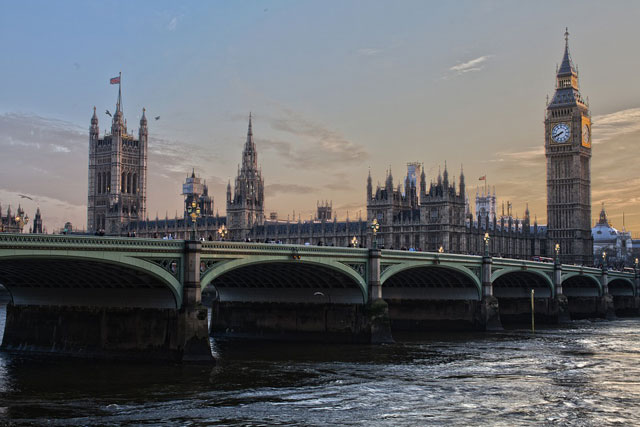The UC Guide to Brexit

The last two weeks have been complete chaos for British politics after the June 23 referendum, which saw the UK vote in favour of leaving the European Union. The fallout of Brexit (a portmanteau of "Britain" and "exit") has since flooded the news and media around the world.
With so much going on for our Commonwealth friends, we spoke to UC Associate Professor of Government and Policy, Dr Ben Freyens and asked him to break down Brexit for us.
Why was there a vote for the UK to leave the EU?
Following the UK 2015 National election, the British Prime Minister David Cameron, made the commitment that unless significant reforms were made to the EU model, a referendum would be held.
These reforms were not initiated because they were opposed by other powerful EU member states such as France and Germany (who want to pursue further integration through regulation and harmonisation). Staying true to his word, David Cameron called a referendum.
It is important to note however, that the British PM did not support the UK's departure from the EU.
The promise to hold a vote was made to an influential faction in the British Conservative Party, which contended that Britain does not benefit economically, politically and socially from its EU membership.
Explain the two sides of Brexit. How do the Government parties come into play here?
Leave (pro-Brexit) was composed of:
- 6 members of the Cabinet (out of 30) and 12 other ministers and secretaries;
- 138 Conservative MPs (out of 330) including Boris Johnson, former Mayor of London City;
- 10 Labour and Democratic Unionist MPs and;
- 1 UK Independence Party MP (Nigel Farage, former UKIP leader)
Remain (anti-Brexit) was led by David Cameron with;
- 23 members of the Cabinet (out of 30) with 51 other ministers and secretaries;
- 185 Conservative MPs (out of 330) and;
- Majority of the MPs from other parties, including 51 from the Scottish National Party.
Over 75% of the British Government was in support of the Remain decision, with the Leave camp almost entirely steered by a minority (but not powerless) group of players in the British Conservative Party.

What are the positives of Brexit?
There are few obvious advantages for anyone from Brexit. Those promoting the exit of Britain from the EU claim that the UK is being held back, and believe that large economic gains are to be reaped now that it is exiting. Many supporters state that immigration is bad for the economy and take away resources and jobs. While these claims are yet to be proven and the outcomes are yet to be known , the leaders of the Leave camp will stand to benefit enormously, with the position to form and lead government as soon as October/November this year.
What are the negatives of Brexit?
At the very least Britain's exit from the EU's Single Market will certainly reduce exchange (of goods, services, labour, capital, assets etc.) with Member States.
Depending on how far Brexit succeeds in the UK complete seceding from Europe, the negatives could involve:
Trade, investment and growth contradiction in both the UK and EU
The EU accounts for about half of the UK's trade of goods and services with 47% of its exports going to EU countries and 54% coming in the from the EU. Exiting the European free trade area means that unless some bilateral trade agreements are renegotiated with key EU Member States, UK exports may face the tariffs and other trade barriers the EU imposes on goods and services produced in non-member countries. This would reduce the demand for UK exports in the EU area with flow-on negative effects for growth in the UK.
Reduced job opportunities and poorer job matches across both sides of the English Channel
The new policies could well burden public finances, reduce services and potentially lead to skill shortages in the UK. Britain has long benefited from the best and brightest migrant workers of other European nations offering their skills to the thriving financial sector in London.
Restricting work and job opportunities between the UK and EU could have detrimental effects on the economy.
Political instability in the UK
The effects of Brexit could precipitate a cycle of political instability. Leadership will change in the Conservative government. The sharp contrast between the current government's support for Remain and the actual popular vote against it is the political equivalent to a vote of no-confidence: it sets a political agenda that the current government is not willing to implement. For Brexit to occur it will therefore be necessary to make changes. Some of these changes are already happening now as David Cameron steps down from PM at the end of the year, as well as Boris Johnson and Nigel Farage recently announcing their resignations.
The EU will be politically weakened and may experience other exits
At the EU-level, the loss of one of its key members is a serious blow to its political cohesion, which had already been severely tested by the Greek debt crisis and the 2015 immigration crisis on its South-Eastern boundaries. It may trigger other exits from affluent members such as Sweden. On the other hand, the EU project depends much more on the strength of the Franco-German tandem (which has seen better days) than on the presence or exit of other members.

How will Brexit affect Australia?
Brexit remains a European affair, and it does not need to be an end-all. A few years of negative experience with Brexit may well lead British citizens to reconsider their position on the issue. Through its geographical position and its history, the UK has little choice but to take an interest in European affairs and exercise its influence on Europe's policy and strategic choices.
In terms of affecting Australia, there should be no direct effect as the current trade and economic ties with Great Britain and the Euro-zone are relatively weak. Events in the South-East Asia region matter much more. However, Australia remains a commodity-based economy, which depends hugely on world growth.
To the extent that Brexit slows down world economic growth, it could have an indirect and significant impact on slowing down Australia's economy.
While the future of Britain and the EU is still unknown at this point, Brexit if and when it happens, will only result in a loss-loss outcome for both sides.
Words by Stephanie Cossetto & Dr Ben Freyens, images courtesy of Pixabay

